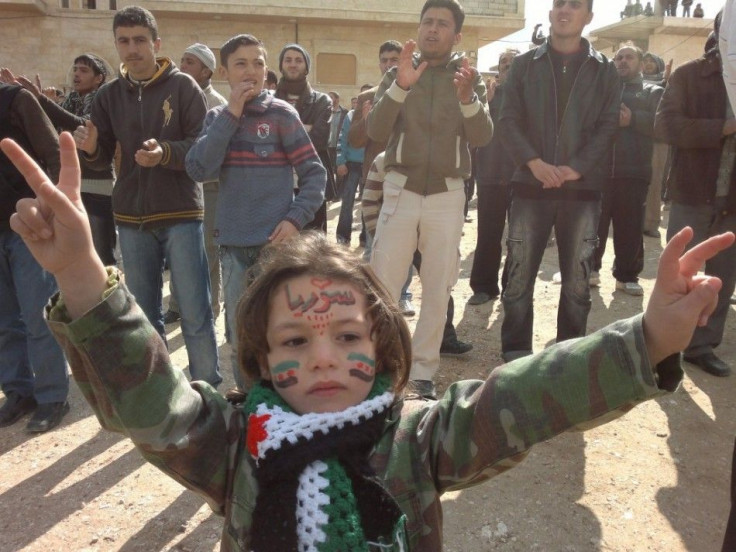Red Cross Kept from Delivering Aid to Rebel Stronghold in Homs

The International Committee of the Red Cross delivered emergency aid to areas near the battered Baba Amro district of Homs Sunday, but, for the third day running, the Syrian goverment kept it out of the former rebel bastion amid reports of bloody reprisals by Assad regime forces.
Activists reported shelling and other violence across Syria, Reuters reported, sending one of the biggest surges of refugees across the border into Lebanon in a single day since the revolt against President Bashar al-Assad began a year ago.
Concerns mounted for civilians left stranded in Baba Amro in freezing weather with little food, fuel or medicine. Rebels abandoned their positions there Thursday after almost a month of near-constant shelling by government forces.
Activists told Reuters the government was trying to prevent the Red Cross from witnessing massacres by Syrian soldiers hunting down and killing remaining rebels.
In all the years that I have known the ICRC in Damascus, the Syrian government has never let them see torture victims or the underbelly of the government, said Joshua Landis, a Syria expert at Oklahoma University. I don't know why they would change now.
It's over for tonight. We will try again tomorrow, said Saleh Dabbakeh, an ICRC spokesman in Damascus. He declined to say why Syrian forces had blocked their entry.
The ICRC said workers had instead delivered supplies to nearby areas where many people had taken refuge.
Military authorities in Homs said aid officials were being kept out for their own safety because of the presence of bombs and landmines, which they allege were left by opposition forces, The Guardian reported.
Activists and Free Syria Army officials vehemently deny having booby-trapped the area and say the regime is trying to hide atrocities there.
The lack of access has drawn international condemnation, with Turkey and Britain accusing Damascus of committing grave crimes in the rebel-held neighbourhood. British Prime Minister David Cameron on Friday called for Assad to face a day of reckoning for the bloody suppression over the last year.
The U.N. High Commissioner for Refugees reported Sunday that as many as 2,000 people fleeing Homs were trying to reach the nearby Lebanese border.
Refugees told Reuters of army shelling and gunfire in border towns. One woman said she and her family had fled the village of Jusiyah, near Qusair, about seven miles from the border.
In the morning the shelling started, so we had to leave towards Lebanon. There were some wounded, but I don't know what happened to them, said Um Ali, 64.
She sat under a tree with her husband, five sons and a pregnant daughter-in-law. They had not brought any belongings.
We don't know what to do, she said.
A doctor on the Lebanese border said around 1,500 Syrians had crossed into Lebanon.
A Lebanese security source said the Lebanese army had arrested at least 35 armed Syrian rebels who were trying to enter the country from Qusair.
Syrian state television showed images of the corpses of anti-Assad fighters killed in clashes in the suburbs of the city of Hama, as well as an array of captured weapons, including arms it said were U.S. and Israeli-made, Reuters reported.
One opposition activist said the Syrian army had raided a girls school in Daraya, near Damascus, beating students for holding an anti-Assad protest and threatening to open fire on similar demonstrations in the future.
In Beirut, hundreds of soldiers and scores of military trucks and jeeps blocked off the city center during protests for and against Assad, whose ruling clan are Alawites, an offshoot of Shi'ite Islam.
Lebanon is home to Shi'ites, Sunnis and Christians, and is the base of the powerful Shi'ite militant group Hezbollah, whhc is armed by the Assad regime.
Sunni Arab states Qatar and Saudi Arabia have been among the loudest calling for Assad's downfall, and have urged arming the rebels.
We sacrifice our blood and souls for you Bashar, chanted a pro-Assad crowd of about 500 people. Some stepped on photos of Saudi Arabia's King Abdullah and threw shoes at a poster of him.
A similar sized anti-Assad crowd sang: We sacrifice our blood and souls for you, Homs.
© Copyright IBTimes 2024. All rights reserved.











